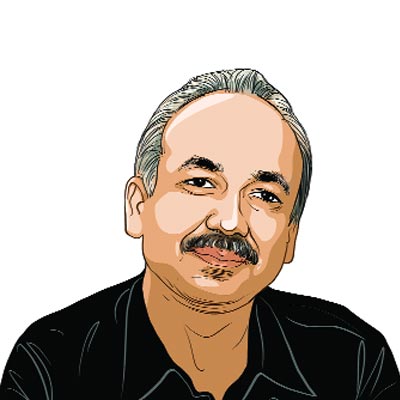Opinion A dangerous vacuum
Kathmandu needs to stem the slide and retrieve credibility
A journalist,Khilanath Dhakal,was allegedly beaten up by activists of a militant youth organisation affiliated to the Communist Party of Nepal-Unified Marxist Leninist (CPN-UML),which heads the coalition government. The incident happened earlier this month. Nepal Prime Minister Jhalanath Khanal and other senior party leaders said they would do everything to bring the culprits to book,but nothing has happened. In another instance,Home Minister and Maoist leader
K.B. Mahra has recommended the lifting of the life-term awarded to a party legislator convicted of murder. These are just two examples of how the big parties exercise their power to protect their own.
Nepal has a government which held a cabinet meeting at the base camp of Mount Everest to highlight the threat of global warming (though it cost the exchequer over five million Nepali rupees) and which has received more than $41 million from international donors to fight the adverse effects of climate change. Yet,in its own backyard,it is found wanting. A local development officer (LDO) in Lalitpur district in the Kathmandu valley has defied a parliamentary committee and allotted licences to private parties to operate stone quarries without assessing its environmental impact. Flanked by Maoists,the LDO held a press conference to send across a terse message that any journalist writing against the extraction of stones,so essential to construct roads and other infrastructure necessary for the countrys development,will not be spared.
Threats to journalists,clandestine trade of natural resources and condoning of a convicted murderer are dangerous symptoms of a weak state. Its biggest challenge now is to re-establish its authority,retrieve credibility and become responsive and functional. Its space should not be usurped by militant political groups or other outfits.
International agencies and donors which relentlessly supported the big three parties with money,ideas and technology,thinking they are capable of bringing peace,democracy and economic prosperity appear as disappointed as the average Nepali citizen today.
President Ram Baran Yadav did try to take a public stance on some crucial issues and had asked political parties to complete the peace and constitution-drafting process on time,but,of late,he seems to have retreated completely. He talks neither about his once favourite save the Mahabharat range campaign nor about the blatant corruption of political parties. Either he is tired of repeating himself or he has realised that the office of the president of the Republic of Nepal has proved to be ineffective and meaningless enjoying neither power nor respect.
Theoretically,nothing could have made the Maoists happier than these developments. But a three-way split in the party has injected confusion into the political course the party will take. Given the background of the party,its cadres are still trying to assert their position and strength by taking recourse to extortion,illegal arbitration and closure of India-aided projects. They are allegedly behind the attack on the project site of the Bangalore-based GMR Group that has undertaken the construction of the upper Karnali hydro project.
The three parties,the CPN (UML),Nepali Congress and the Unified Communist Party of Nepal-Maoists (UCPN-M),kept harping on the abolition of the monarchy as their biggest political success in the past three years,but there has not been a strong central institution to fill that vacuum.
Nepals civil society,media and the three major political parties worked together in 2006 to wrest power that king Gyanendra had appropriated. But the prolonged honeymoon,especially between the media and the three parties,is now soured.
The big three all suffering from serious intra-party divisions are making a last-ditch effort to preserve their hegemony by claiming once again that together we can deliver the constitution within August 28. But no one believes that.
A review of the politics and policies that they have pursued in the past five years and owning responsibility for the current mess will help them a little. They are seen as bigger villains today than the king was when he took over power for 15 months.


